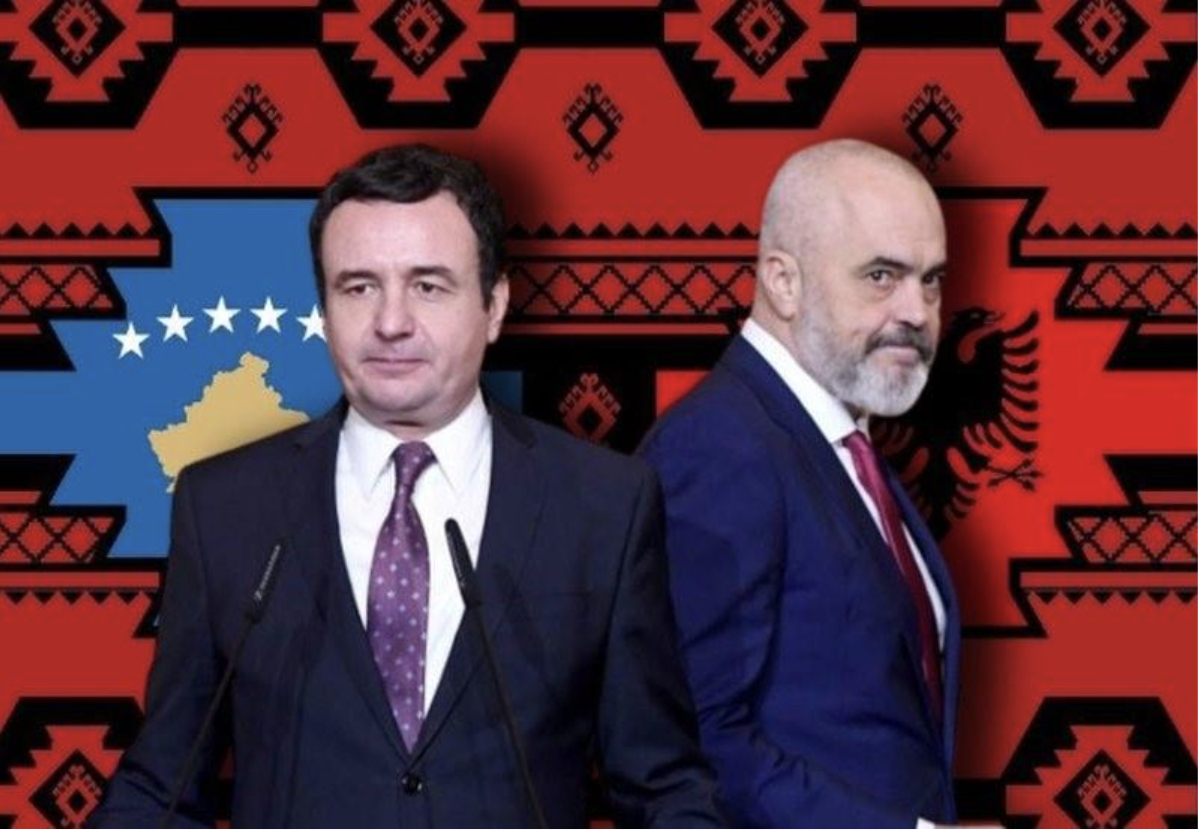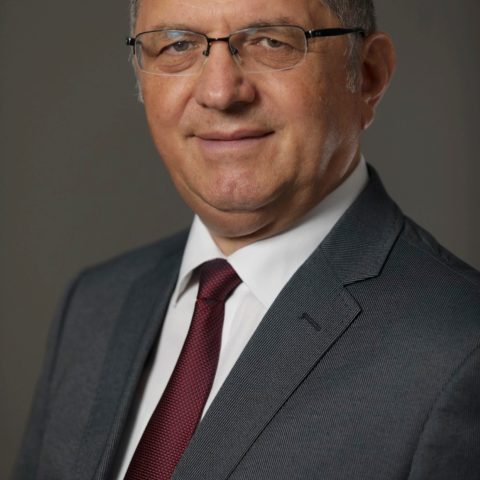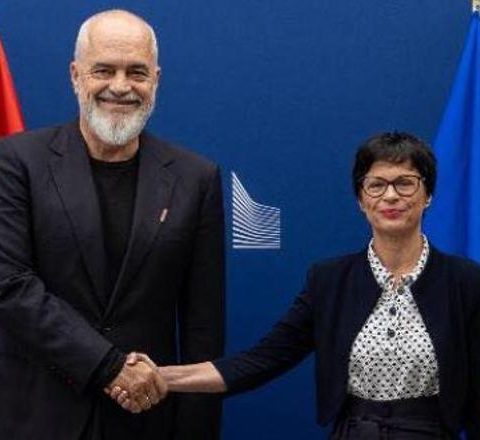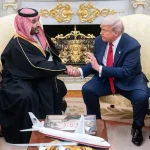The Rama–Kurti clash over the war crimes tribunal highlights deeper structural tensions, from unimplemented agreements to competing regional agendas.
The latest clash between Albanian Prime Minister Edi Rama and Kosovo’s Albin Kurti is more than another exchange of political insults. It reflects the fragile state of relations between Albania and Kosovo, two countries that often speak of unity but rarely act as genuine partners.
The dispute began with Kurti’s accusation that Rama once supported the Kosovo Specialist Chambers in The Hague, the court prosecuting former Kosovo Liberation Army leaders including ex-president Hashim Thaçi. Rama’s response was scathing, accusing Kurti and his movement of political amnesia: “Ten years ago you didn’t even know Kosovo’s anthem, let alone Thaçi’s innocence.” Rama also denied being behind the planned protest in Tirana in support of the indicted leaders, while declaring that he “supports it with all his heart.”
This is not simply a quarrel about a tribunal. It is about sovereignty, influence, and who gets to speak for Albanians in the Balkans. For years, Kosovo leaders have accused Albania of treating them as a dependent province rather than an equal state. Rama has repeatedly positioned himself as a mediator in talks with Serbia, a role that Prishtina never asked him to play. Such paternalism has created resentment, while more than seventy bilateral agreements between the two governments remain largely unimplemented. Economic cooperation is weak, cross-border investments scarce, and border disputes over agricultural goods frequently expose the absence of a real strategic agenda.
The divide is also about competing visions. Kurti has championed an “Albanian macro-Schengen,” meaning deeper integration between Albania and Kosovo as independent states. Rama, by contrast, has invested his political capital in the “Open Balkan” initiative with Serbia, portraying himself as a regional statesman. For Kosovo, however, this initiative looks like cooperation without recognition, giving Belgrade more space without addressing the central issue of independence.
The consequences go beyond the Albanian world. Albania is a NATO member and an EU candidate. Kosovo remains outside both, in need of Albania’s support. Instead of joining forces, Tirana and Prishtina often cancel each other out. EU officials in Brussels have noted the lack of coordination, especially in the dialogue with Serbia, which leaves Belgrade stronger and Albanians weaker. In NATO, the absence of a common approach undermines efforts to integrate Kosovo into Euro-Atlantic structures at a time when the Balkans face renewed security tensions.
For Rama, clashing with Kurti strengthens his image as a pragmatic deal-maker who can speak with everyone, including Belgrade. For Kurti, standing up to Tirana reinforces his nationalist credentials and secures him domestic support. Both may win political points at home, but together they risk weakening the credibility of Albanians in regional and international diplomacy.
The Albania–Kosovo relationship, once expected to become a model of strategic partnership, now risks becoming permanently hollowed out, heavy on symbolism, light on substance. Unless the two governments can move beyond rivalry and establish a genuine strategic agenda, the so-called “family quarrel” will continue to benefit others, from Brussels to Belgrade. And in a region where every division is a weakness, that is a dangerous game.










